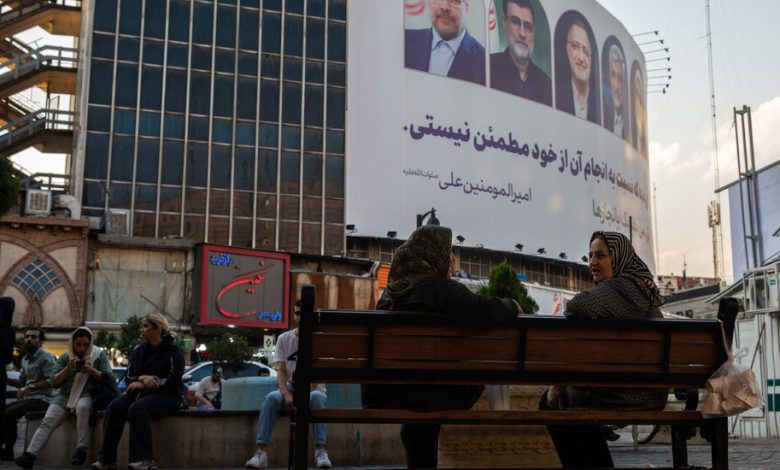In Iran Election, a New Target for Conservatives: the Government

The campaign billboards adorning the streets of Iran for the coming presidential election make grand promises: economic prosperity, an end to corruption, a free press, the reversal of a brain drain and a pledge from one candidate to “save the citizens” from all the woes afflicting the country.
In their efforts to attract votes, all six candidates — five conservatives and one reformist, all selected by a committee of clerics — are unleashing blistering attacks on the status quo. In speeches, televised debates and round-table discussions, they have criticized the government’s economic, domestic and foreign policies, as well as the violent treatment of women by the morality police, and have ridiculed rosy official assessments of Iran’s economic prospects as harmful delusions.
Iran is holding a special presidential election on June 28 to choose a successor to President Ebrahim Raisi, a hard-line conservative who was killed last month in a helicopter crash. While the supreme leader, Ayatollah Ali Khamenei, has final say on all major policy decisions in Iran, the presidency sets the domestic agenda and, to a lesser extent, can influence foreign policy.
Elections in Iran are not free and fair by Western standards, and the selection of candidates is tightly vetted by the Guardian Council, an appointed committee of 12 clerics. Some elections have been competitive, however, and the results can be unpredictable. The council approved the current candidates from a list of 80, seven of them women, and among them a former president and several government ministers and lawmakers, who were all disqualified.
In past political campaigns, conservatives and reformists both have attacked their rivals, but conservatives have typically remained within strict ideological boundaries that precluded attacks on the system.
